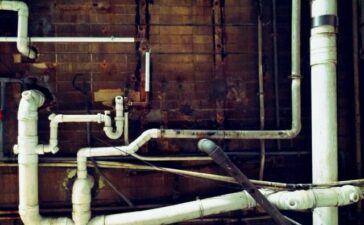If you’re a homeowner, it’s important to know what to expect during an electrical system inspection. By being prepared, you’ll be able to ask the right questions and get a better understanding of the condition of your home’s electrical system. An inspection from local electrician like gorhamelectrical.com.au can help you identify any potential problems with your wiring or equipment, so be sure to schedule residential and commercial electrical services in Sydney atleast once on an annual basis.
Here are a few things you can expect during an electrical system inspection.
Checking Whether Your Home Has a Proper Number of Circuits
An electrical system inspection should include a check to ensure that your home has the proper number of circuits. This is especially important if you have updated your home or added new appliances and electronics, as you may need more circuits to support the increased demand (source: https://safeelectricllc.net/electrical-inspections/).
If you don’t have enough circuits, your home could experience power outages or overloaded electrical systems. You may also be at risk for fires or electrical shocks. A licensed electrician can help you determine if you need more circuits and can install them safely and effectively.
Checking for GFCI and AFCI Circuit Protection
GFCI and AFCI circuit protection is an important safety feature in your home. During your electrical system inspection, the technician will ensure that these protections are properly installed and functioning. These circuit breakers help prevent fires by interrupting the electrical current if there is a problem.
These circuit breakers are required for any outlets or appliances located in outdoor areas or near sources of water, such as kitchen sinks. They are also recommended for bathrooms, laundry rooms, and other areas with a higher risk of electrical fires. An inspection ensures protection follows the latest code requirements.
Checking All Electrical Boxes for Proper Flushing With the Wall
An electrician will also check all the electrical boxes to ensure they’re properly flushed with the wall. If there is any damage, it can be repaired on the spot. They will also check whether the boxes are well secured, properly grounded, and whether the covers are tight. Size also matters to ensure boxes can accommodate the number of wire conductors they’ll contain.
The electrician will also look for signs of corrosion or water infiltration and take the necessary measures to correct that. The electrician may also test the insulation on wires to see if it’s still in good condition. If it’s not, a replacement is done. Electric boxes play a crucial role in the safety of your home, so regular checks are vital.
Measuring Outlet and Switch Heights To Ensure They’re Consistent
Another thing an inspector will look at is the height of your outlets and switches. They need to be consistent, so if one is too low or too high, it can cause problems. The inspector will use a level to measure from the floor to the center of each outlet and switch. This ensures that they’re all at the same height throughout your home.
Checking Cables and Wires for Proper Clamping, Sheathing and Anchoring
Inspectors will also check that all cables and wires are properly clamped, sheathed and anchored. This ensures that they don’t contact other objects or create a fire hazard. Any exposed wiring will also be noted and corrected. Inspectors will also check for the right wire connectors and proper cable staples in the electric box.
They’ll also check the wire gauge to ensure that it’s adequate for the load or the amperage of the circuit. A 14-gauge wire is required for 15-amp circuits, a 12-gauge wire for 20-amp circuits, and so on.
Checking for and Recommending Surge Protection
An electrical inspection will also include checking for any electrical surge protection that may be needed. Surge protectors are devices installed in your home’s electrical system to help protect against power surges from outside sources, like lightning strikes and appliance overloads.
A surge protector will absorb the excess energy from a power surge, preventing it from damaging your appliances or electronics. If your home doesn’t currently have a surge protector, your inspector may recommend one for your home. A whole-home surge protector is a good way to protect your home’s electrical system from future surges.
Don’t Overlook These Electrical System Inspection Points
When it comes to your home’s electrical system, safety should be your number one priority. That’s why it’s important to have a qualified electrician perform an inspection at least once a year. They’ll help identify any potential problems, recommend and do repairs, and ensure your electrical system is up to code.






